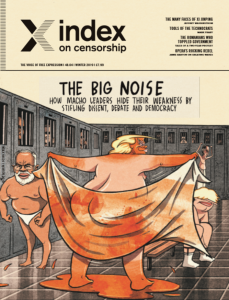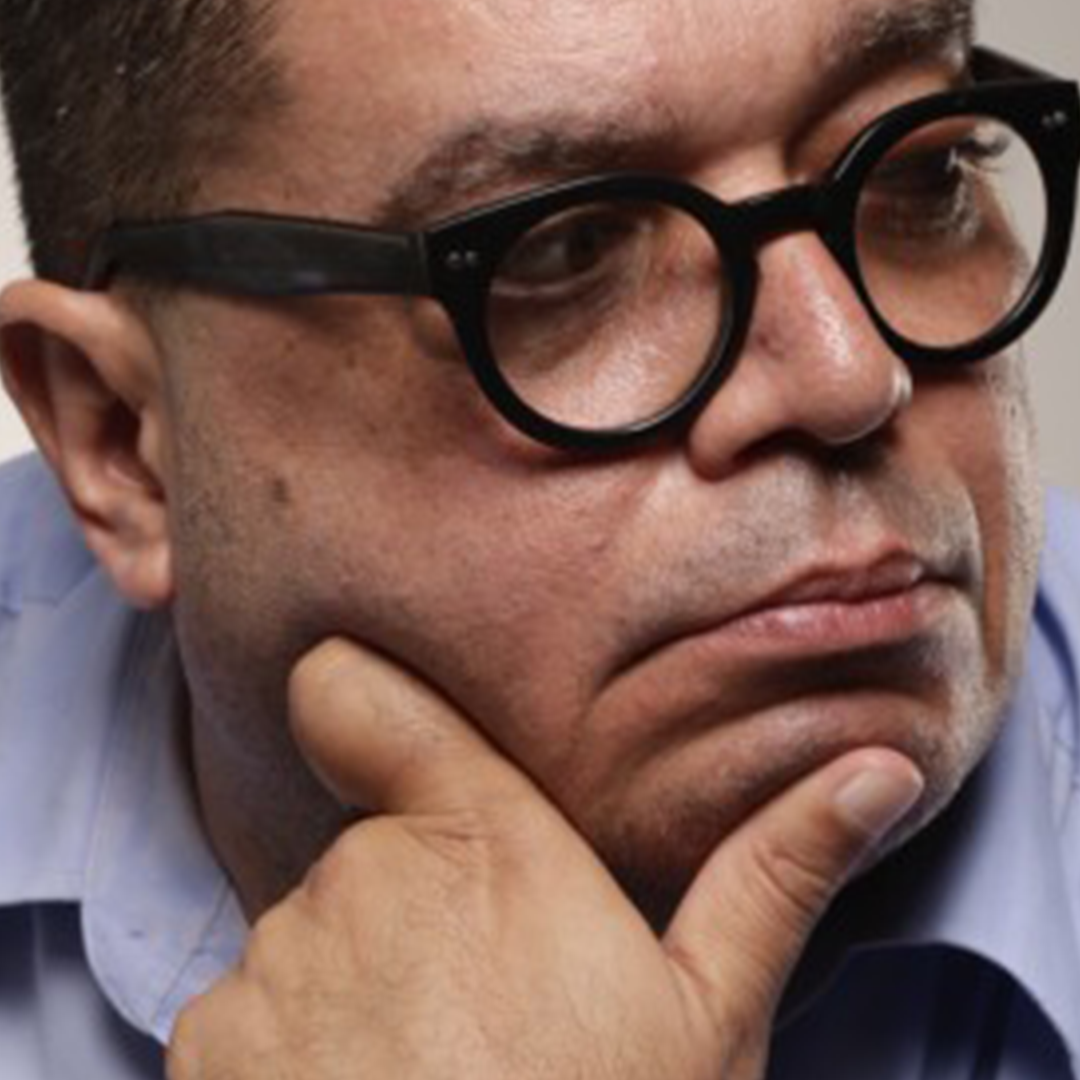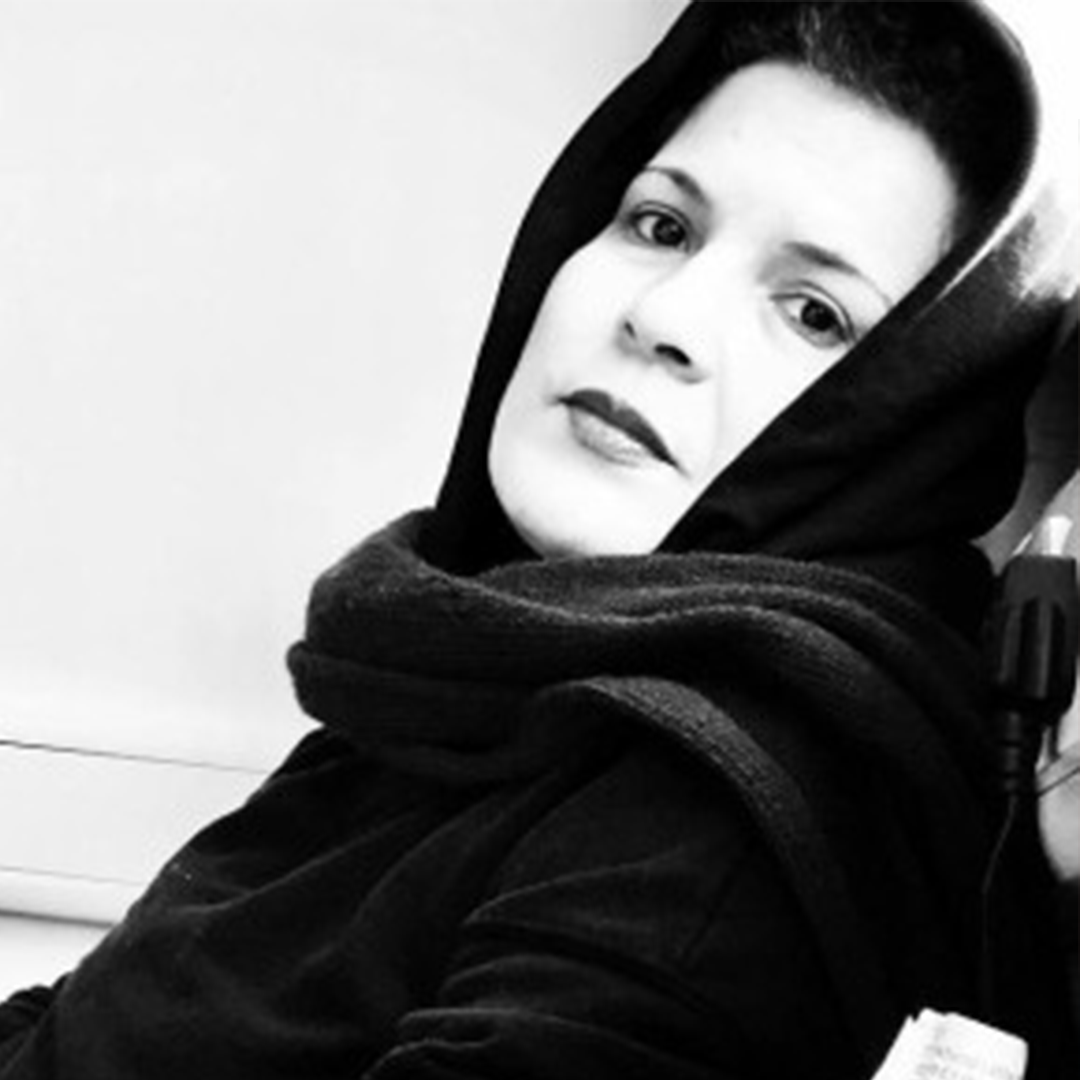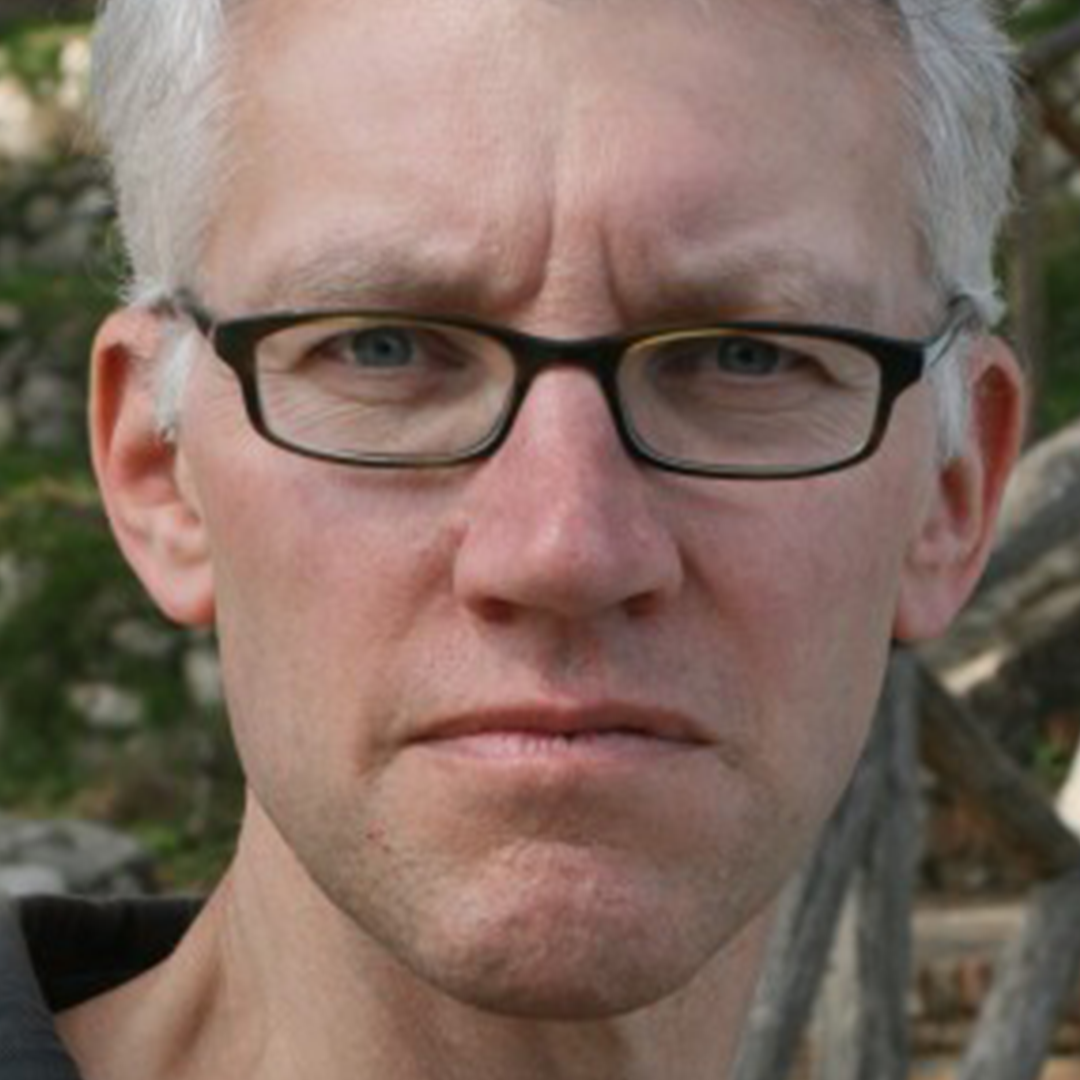30 Mar 2020 | Magazine, Magazine Contents, Volume 49.01 Spring 2020
[vc_row][vc_column][vc_custom_heading text=”With contributions from Ak Welsapar, Julian Baggini, Alison Flood, Jean-Paul Marthoz and Victoria Pavlova”][/vc_column][/vc_row][vc_row][vc_column][vc_column_text]
 The Spring 2020 issue of Index on Censorship magazine looks at our own role in free speech violations. In this issue we talk to Swedish people who are willingly having microchips inserted under their skin. Noelle Mateer writes about living in China as her neighbours, and her landlord, embraced video surveillance cameras. The historian Tom Holland highlights the best examples from the past of people willing to self-censor. Jemimah Steinfeld discusses holding back from difficult conversations at the dinner table, alongside interviewing Helen Lewis on one of the most heated conversations of today. And Steven Borowiec asks why a North Korean is protesting against the current South Korean government. Plus Mark Frary tests the popular apps to see how much data you are knowingly – or unknowingly – giving away.
The Spring 2020 issue of Index on Censorship magazine looks at our own role in free speech violations. In this issue we talk to Swedish people who are willingly having microchips inserted under their skin. Noelle Mateer writes about living in China as her neighbours, and her landlord, embraced video surveillance cameras. The historian Tom Holland highlights the best examples from the past of people willing to self-censor. Jemimah Steinfeld discusses holding back from difficult conversations at the dinner table, alongside interviewing Helen Lewis on one of the most heated conversations of today. And Steven Borowiec asks why a North Korean is protesting against the current South Korean government. Plus Mark Frary tests the popular apps to see how much data you are knowingly – or unknowingly – giving away.
In our In Focus section, we sit down with different generations of people from Turkey and China and discuss with them what they can and cannot talk about today compared to the past. We also look at how as world demand for cocaine grows, journalists in Colombia are increasingly under threat. Finally, is internet browsing biased against LBGTQ stories? A special Index investigation.
Our culture section contains an exclusive short story from Libyan writer Najwa Bin Shatwan about an author changing her story to people please, as well as stories from Argentina and Bangladesh.
[/vc_column_text][/vc_column][/vc_row][vc_row][vc_column][vc_custom_heading text=”Special Report”][/vc_column][/vc_row][vc_row][vc_column][vc_column_text]Willingly watched by Noelle Mateer: Chinese people are installing their own video cameras as they believe losing privacy is a price they are willing to pay for enhanced safety
The big deal by Jean-Paul Marthoz: French journalists past and present have felt pressure to conform to the view of the tribe in their reporting
Don’t let them call the tune by Jeffrey Wasserstrom: A professor debates the moral questions about speaking at events sponsored by an organisation with links to the Chinese government
Chipping away at our privacy by Nathalie Rothschild: Swedes are having microchips inserted under their skin. What does that mean for their privacy?
There’s nothing wrong with being scared by Kirsten Han: As a journalist from Singapore grows up, her views on those who have self-censored change
How to ruin a good dinner party by Jemimah Steinfeld: We’re told not to discuss sex, politics and religion at the dinner table, but what happens to our free speech when we give in to that rule?
Sshh… No speaking out by Alison Flood: Historians Tom Holland, Mary Fulbrook, Serhii Plokhy and Daniel Beer discuss the people from the past who were guilty of complicity
Making foes out of friends by Steven Borowiec: North Korea’s grave human rights record is off the negotiation table in talks with South Korea. Why?
Nothing in life is free by Mark Frary: An investigation into how much information and privacy we are giving away on our phones
Not my turf by Jemimah Steinfeld: Helen Lewis argues that vitriol around the trans debate means only extreme voices are being heard
Stripsearch by Martin Rowson: You’ve just signed away your freedom to dream in private
Driven towards the exit by Victoria Pavlova: As Bulgarian media is bought up by those with ties to the government, journalists are being forced out of the industry
Shadowing the golden age of Soviet censorship by Ak Welsapar: The Turkmen author discusses those who got in bed with the old regime, and what’s happening now
Silent majority by Stefano Pozzebon: A culture of fear has taken over Venezuela, where people are facing prison for being critical
Academically challenged by Kaya Genç: A Turkish academic who worried about publicly criticising the government hit a tipping point once her name was faked on a petition
Unhealthy market by Charlotte Middlehurst: As coronavirus affects China’s economy, will a weaker market mean international companies have more power to stand up for freedom of expression?
When silence is not enough by Julian Baggini: The philosopher ponders the dilemma of when you have to speak out and when it is OK not to[/vc_column_text][/vc_column][/vc_row][vc_row][vc_column][vc_custom_heading text=”In Focus”][vc_column_text]Generations apart by Kaya Genç and Karoline Kan: We sat down with Turkish and Chinese families to hear whether things really are that different between the generations when it comes to free speech
Crossing the line by Stephen Woodman: Cartels trading in cocaine are taking violent action to stop journalists reporting on them
A slap in the face by Alessio Perrone: Meet the Italian journalist who has had to fight over 126 lawsuits all aimed at silencing her
Con (census) by Jessica Ní Mhainín: Turns out national censuses are controversial, especially in the countries where information is most tightly controlled
The documentary Bolsonaro doesn’t want made by Rachael Jolley: Brazil’s president has pulled the plug on funding for the TV series Transversais. Why? We speak to the director and publish extracts from its pitch
Queer erasure by Andy Lee Roth and April Anderson: Internet browsing can be biased against LGBTQ people, new exclusive research shows[/vc_column_text][/vc_column][/vc_row][vc_row][vc_column][vc_custom_heading text=”Culture”][vc_column_text]Up in smoke by Félix Bruzzone: A semi-autobiographical story from the son of two of Argentina’s disappeared
Between the gavel and the anvil by Najwa Bin Shatwan: A new short story about a Libyan author who starts changing her story to please neighbours
We could all disappear by Neamat Imam: The Bangladesh novelist on why his next book is about a famous writer who disappeared in the 1970s[/vc_column_text][/vc_column][/vc_row][vc_row][vc_column][vc_custom_heading text=”Index around the world”][vc_column_text]Demand points of view by Orna Herr: A new Index initiative has allowed people to debate about all of the issues we’re otherwise avoiding[/vc_column_text][/vc_column][/vc_row][vc_row][vc_column][vc_custom_heading text=”Endnote”][vc_column_text]Ticking the boxes by Jemimah Steinfeld: Voter turnout has never felt more important and has led to many new organisations setting out to encourage this. But they face many obstacles[/vc_column_text][/vc_column][/vc_row][vc_row][vc_column width=”1/3″][vc_custom_heading text=”Subscribe”][vc_column_text]In print, online, in your mailbox, on your iPad.
Subscription options from £18 or just £1.49 in the App Store for a digital issue.
Every subscriber helps support Index on Censorship’s projects around the world.
 SUBSCRIBE NOW[/vc_column_text][/vc_column][vc_column width=”1/3″][vc_custom_heading text=”Read”][vc_column_text]The playwright Arthur Miller wrote an essay for Index in 1978 entitled The Sin of Power. We reproduce it for the first time on our website and theatre director Nicholas Hytner responds to it in the magazine
SUBSCRIBE NOW[/vc_column_text][/vc_column][vc_column width=”1/3″][vc_custom_heading text=”Read”][vc_column_text]The playwright Arthur Miller wrote an essay for Index in 1978 entitled The Sin of Power. We reproduce it for the first time on our website and theatre director Nicholas Hytner responds to it in the magazine
READ HERE[/vc_column_text][/vc_column][vc_column width=”1/3″][vc_custom_heading text=”Listen”][vc_column_text]In the Index on Censorship autumn 2019 podcast, we focus on how travel restrictions at borders are limiting the flow of free thought and ideas. Lewis Jennings and Sally Gimson talk to trans woman and activist Peppermint; San Diego photojournalist Ariana Drehsler and Index’s South Korean correspondent Steven Borowiec
LISTEN HERE[/vc_column_text][/vc_column][/vc_row]
22 Jan 2020 | News and features, Volume 48.04 Winter 2019
[vc_row][vc_column][vc_custom_heading text=”In the winter 2019 issue of Index on Censorship magazine, editor-in-chief Rachael Jolley argues that a new generation of democratic leaders is actively eroding essential freedoms, including free speech” google_fonts=”font_family:Libre%20Baskerville%3Aregular%2Citalic%2C700|font_style:400%20italic%3A400%3Aitalic”][vc_column_text]
 Like brothers in arms, they revel in the same set of characteristics. They share them, and their favourite ways of using them, on social media.
Like brothers in arms, they revel in the same set of characteristics. They share them, and their favourite ways of using them, on social media.
From Orbán to Trump and from Bolsonaro to Johnson, national leaders who want to dismiss analysis with a personalised tweet, and never want to answer a direct question, have come to power – and are using power to silence us. They like to think of themselves as strongmen but what, in fact, they are doing is channelling the worst kind of machismo.
For toughness, read intolerance of disagreement. They are extremely uncomfortable with public criticism. They would rather hold a Facebook “press conference” where they are not pressed than one where reporters get to push them on details they would rather not address. Despite running countries, they try to pretend that those who hold them to account are the elite who the public should not trust.
While every generation has its “tough” leaders, what’s different about today’s is that they are everywhere, and learning, copying and sharing their measures with each other – aided, of course, by the internet, which is their ultimate best friend. And this is not just a phenomenon we are seeing on one continent. Right now these techniques are coming at us from all around the globe, as if one giant algorithm is showing them the way. And it’s not happening just in countries run by unelected dictators; democratically elected leaders are very firmly part of this boys’ club.
Here are some favoured techniques:
If you don’t like some media coverage, you look at ways of closing down or silencing that media outlet, and possibly others. Could a friend buy it? Could you bring in some legislation that shuts it out? How about making sure it loses its advertising? That is happening now. In Hungary, there are very few independent media outlets left, and the media that remain is pretty scared about what might happen to them. Hungarian journalists are moving to other countries to get the chance to write about the issues.
In China, President Xi Jinping has just increased the pressure on journalists who report for official outlets by insisting they take a knowledge test, which is very much like a loyalty test, before being given press cards.
Just today, as I sit here writing, I’ve switched on the radio to hear that the UK’s Conservative Party has made an official complaint to the TV watchdog over Channel 4’s coverage of the general election campaign (there was a debate last night on climate change where party leaders who didn’t turn up were replaced with giant blocks of ice). A party source told the Conservative-supporting Daily Telegraph newspaper: “If we are re-elected, we will have to review Channel 4’s public service broadcasting obligations. Any review would, of course, look at whether its remit should be better focused so it is serving the public in the best way possible.” In summary, they are saying they will close down the media that disagree with them.
This not very veiled threat is very much in line with the rhetoric from President Donald Trump in the USA and President Viktor Orbán in Hungary about the media knowing its place as more a subservient hat-tipping servant than a watchdog holding power to account. It’s also not so far from attitudes that are prevalent in Russia and China about the role of the media.
For those who might think that media freedom is a luxury, or doesn’t have much importance in their lives, I suggest they take a quick look at any country or point in history where media freedom was taken away, and then ask themselves: “Do I want to live there?”
Dictators know that control of the message underpins their power, and so does this generation of macho leaders. Getting the media “under control” is a high priority. Trump went on the offensive against journalists from the first minute he strode out on to the public stage. Brazil’s newish leader, President Jair Bolsonaro, knows it too. In fact, he got together with Trump on the steps of the White House to agree on a fightback against “fake news”, and we all should know what they mean right there. “Fake news” is news they don’t like and really would rather not hear.
New York Times deputy general counsel David McCraw told Index that this was “a very dark moment for press freedom worldwide”.
When the founders of the USA sat down to write the Constitution – that essential document of freedom, written because many of them had fled from countries where they were not allowed to speak, take certain jobs or practise their religion – they had in mind creating a country where freedom was protected. The First Amendment encapsulates the right to criticise the powerful, but now the country is led by someone who says, basically, he doesn’t support it. No wonder McCraw feels a deep sense of unease.
But when Trump’s team started to try to control media coverage, by not inviting the most critical media to press briefings, what was impressive was that American journalists from across the political spectrum spoke out for media freedom. When then White House press secretary Sean Spicer tried to stop journalists from The New York Times, The Guardian and CNN from attending some briefings, Bret Baier, a senior anchor with Fox News, spoke out. He said on Twitter: “Some at CNN & NYT stood w/FOX News when the Obama admin attacked us & tried 2 exclude us-a WH gaggle should be open to all credentialed orgs.”
The media stood up and criticised the attempt to allow only favoured outlets access, with many (including The Wall Street Journal, AP and Bloomberg) calling it out. What was impressive was that they were standing up for the principle of media freedom. The White House is likely to at least think carefully about similar moves when it realises it risks alienating its friendly media as well as its critics.
[/vc_column_text][vc_row_inner][vc_column_inner width=”1/4″][vc_icon icon_fontawesome=”fa fa-quote-left” color=”custom” size=”xl” align=”right” custom_color=”#dd3333″][/vc_column_inner][vc_column_inner width=”3/4″][vc_custom_heading text=”And that’s the lesson for media everywhere. Don’t let them divide and rule you” font_container=”tag:h3|text_align:left” google_fonts=”font_family:Libre%20Baskerville%3Aregular%2Citalic%2C700|font_style:400%20italic%3A400%3Aitalic”][/vc_column_inner][/vc_row_inner][vc_column_text]
And that’s the lesson for media everywhere. Don’t let them divide and rule you. If a newspaper that you think of as the opposition is not allowed access to a press briefing because the prime minister or the president doesn’t like it, you should be shouting about it just as hard as if it happened to you, because it is about the principle. If you don’t believe in the principle, in time they will come for you and no one will be there to speak out.
That’s the big point being made by Baier: it happened to us and people spoke up for us, so now I am doing the same. A seasoned Turkish journalist told me that one of the reasons the Turkish government led by President Recep Tayyip Erdogan was able to get away with restrictions on critical media early on, was because the liberal media hadn’t stood up for the principle in earlier years when conservative press outlets were being excluded or criticised.
Sadly, the UK media did not show many signs of standing united when, during this year’s general election campaign, the Daily Mirror, a Labour-supporting newspaper, was kicked off the Conservative Party’s campaign “battle bus”. The bus carries journalists and Prime Minister Boris Johnson around the country during the campaign. The Mirror, which has about 11 million readers, was the only newspaper not allowed to board the bus. When the Mirror’s political editor called on other media to boycott the bus, the reaction was muted. Conservative Party tacticians will have seen this as a success, given the lack of solidarity to this move by the rest of the media (unlike the US coverage of the White House incident).
The lesson here is to stand up for the principles of freedom and democracy all the time, not just when they affect you. If you don’t, they will be gone before you know it.
Rallying rhetoric is another tried and tested tactic. They use it to divide the public into “them and us”, and try to convert others to thinking they are “people like us”. If we, the public, think they are on our side, we are more likely to put the X in their ballot box. Trump and Orbán practise the “people like us” and “everyone else is our enemy” strategies with abandon. They rail against people they don’t like using words such as “traitor”.
Again in Hungary, people are put into the “outsiders” box if they are gay, women who haven’t had children or don’t conform to the ideas that the Orbán government stands for.
Dividing people into “them and us” has huge implications for our democracies. In separating people, we start to lose our empathy for people who are “other” and we potentially stop standing up for them when something happens. It creates divides that are useful for those in power to manipulate to their advantage.
The University of Birmingham’s Henriette van der Bloom recently co-published research pamphlet Crisis of Rhetoric: Renewing Political Speech and Speechwriting. She said: “I think there is a risk we are all putting ourselves and others into boxes, then we cannot really collaborate about improving our society. Some would say that is what is partly going on at the moment.” Looking forward, she saw one impact could be “a society in crisis, speeches are delivered, and people listen, but it becomes more and more polarising”.
But it’s not just the future, it’s today. We already see societies in crisis, with democratic values being threatened and eroded. This does not point to a rosy future. But there are some signs for optimism. In this issue, we also feature protesters who have campaigned and achieved significant change. In Romania, a mass weekly protest against a new law which would allow political corruption has ended with the government standing down; in Hungary, a new opposition mayor has been elected in Budapest.
Democracies need to remember that criticism and political opposition are an essential part of their success. We must hope they do.
[/vc_column_text][/vc_column][/vc_row][vc_row][vc_column][vc_column_text]
Rachael Jolley is editor-in-chief of Index on Censorship magazine. She tweets @londoninsider. This article is part of the latest edition of Index on Censorship magazine, with its special report on macho male leaders
Index on Censorship’s winter 2019 issue is entitled The Big Noise: How macho leaders hide their weakness by stifling dissent, debate and democracy
Look out for the new edition in bookshops, and don’t miss our Index on Censorship podcast, with special guests, on Soundcloud.
[/vc_column_text][/vc_column][/vc_row][vc_row][vc_column width=”1/3″][vc_custom_heading text=”How macho leaders hide their weakness by stifling dissent, debate and democracy” font_container=”tag:h3|text_align:left” link=”url:https%3A%2F%2Fwww.indexoncensorship.org%2F2019%2F12%2Fmagazine-big-noise-how-macho-leaders-hide-weakness%2F|||”][vc_column_text]The winter 2019 Index on Censorship magazine looks at how male leaders around the world are using masculinity against our freedoms[/vc_column_text][/vc_column][vc_column width=”1/3″][vc_row_inner][vc_column_inner][vc_single_image image=”111045″ img_size=”full” onclick=”custom_link” link=”https://www.indexoncensorship.org/2019/09/magazine-border-forces-how-barriers-to-free-thought-got-tough/”][/vc_column_inner][/vc_row_inner][/vc_column][vc_column width=”1/3″][vc_custom_heading text=”Subscribe” font_container=”tag:h3|text_align:left”][vc_row_inner][vc_column_inner][vc_column_text]In print, online. In your mailbox, on your iPad.
Subscription options from £18 or just £1.49 in the App Store for a digital issue.
Every subscriber helps support Index on Censorship’s projects around the world.
 SUBSCRIBE NOW[/vc_column_text][/vc_column_inner][/vc_row_inner][/vc_column][/vc_row]
SUBSCRIBE NOW[/vc_column_text][/vc_column_inner][/vc_row_inner][/vc_column][/vc_row]
17 Jan 2020 | Global Journalist, media freedom featured, News and features, Turkey
[vc_row][vc_column][vc_column_text]This article is part of Index on Censorship partner Global Journalist’s Project Exile series, which has published interviews with exiled journalists from around the world.[/vc_column_text][vc_custom_heading text=”“I try to live isolated to protect myself. “”][vc_separator][/vc_column][/vc_row][vc_row][vc_column][vc_column_text]

Zubyede Sari
When she got her start in the news business in 2009, Turkish journalist Zübeyde Sari couldn’t have imagined her chosen profession would cause her to have to leave her homeland.
At that time, Turkey’s then-prime minister Recep Tayyip Erdogan was making peace overtures to Kurdish separatists, the Arab Spring that triggered civil war in neighbouring Syria was still more than a year away, and Turkish journalists and opposition parties had significant latitude to criticise Erdogan and the ruling AKP party.
After graduating from university in the southern port town of Mersin, Sari later moved east to the mainly Kurdish city of Diyarbakir, about 60 miles (97km) from the Syrian border. There she became a correspondent for BBC Turkish and the pro-Kurdish IMC TV, eventually covering the Syrian civil war as well as Turkey’s conflict with the PKK, a Kurdish militia.
Yet Turkey was becoming a more restrictive place for journalists. Censorship increased after massive protests in 2013 in Istanbul’s Gezi Park. Gezi Park. In 2016, a failed military coup against President Erdogan triggered a ferocious crackdown on dissidents. More than 150,000 civil servants, police officers and academics were fired from government jobs for suspected disloyalty, according to a tally from the website Turkeypurge.com. Over 300 journalists were arrested and 189 media outlets shut down. IMC TV was raided by police and shutdown mid-broadcast.
Sari survived the initial purges, but in late 2018 she was forced to flee to Germany. “I had to leave in just one night,” she says. “They put my face on all the front pages of the magazines, accusing me of being part of a broadcast television network connected to the Kurdish movement. The next day, I would have woken up with the police knocking at my front door.”
Soon after leaving, she published an article for the site SuperHaber.tv detailing collaboration between the ruling AKP party and Turkish security in the construction of hidden prisons for political dissidents. Now 36, she lives in Berlin, Germany and works for Özgürüz [We Are Free], an online Turkish news portal founded by the well-known exiled journalist Can Dündar.
Sari, who still fears threatened by the many pro-Erdogan Turkish immigrants in Germany, spoke with Global Journalist’s Arianna Suardi. Below, an edited version of their interview:
Global Journalist: Why exactly were you targeted?
Sari: It’s complicated, but I think the Turkish government chose to target me because I’m reporting the truth about the political situation in Turkey. I talk about corruption and the lack of freedom of expression, and of course Erdogan’s party doesn’t like it. I also have friends who are Kurdish and [minority] Alevis and that’s probably why I’ve been accused of being one of them.
GJ: How was it to leave in just one night?
Sari: I’m still under the impact of that feeling. You basically leave your life behind with a small suitcase. It was November 2018, in one night I packed all the things I could and in the early morning I went to the airport and I took the first plane to Berlin.
I feel I don’t belong in this place. Leaving your country is a problem, but settling down in another one isn’t easy either.
GJ: Is life in Germany different than you imagined?
Sari: I’m working for Özgürüz. I can do my profession and I’ve been supported by [press freedom group] Reporters Without Borders. But it’s still very difficult here, more than I imagined. That’s why I started getting therapy. One important aspect is that I don’t speak German. I’m basically restarting my life from the beginning.
GJ: When do you think it will be possible to go back to Turkey?
Sari: I’ve packed my luggage everyday hoping to go back, and I’m still doing it. The problem is the climate of freedom of expression – in Turkey it’s terrible. You need press cards from the government to be a journalist. The government has full control over press card distribution. All the media outlets in Turkey are controlled by Erdogan, and if you’re not part of them you’re considered a terrorist or a traitor.
GJ: Now that you’re in Germany, do you feel free to express yourself or do you still feel pressure?
Sari: No, I can’t express myself. No one has actually threatened me so far, but I just try to hide myself as a form of protection. Sometimes I have the feeling that [Turkish] people in Germany do not really understand what is happening in Turkey, and that is the reason why they sympathise with Erdogan.
I prefer ignoring them rather than get into trouble…I try to avoid every private and personal conversation because I’m scared. It’s not easy, but when, for example, I have to take a taxi, I don’t reveal my identity nor my views about politics. Just yesterday, I was in a taxi and I lied about my profession, I said I was an accountant because I didn’t feel safe. I lie all the time, and I try to live isolated to protect myself.[/vc_column_text][/vc_column][/vc_row][vc_row][vc_column width=”1/2″][vc_video link=”https://youtu.be/6BIZ7b0m-08″][/vc_column][vc_column width=”1/2″][vc_column_text]Index on Censorship partner Global Journalist is a website that features global press freedom and international news stories as well as a weekly radio program that airs on KBIA, mid-Missouri’s NPR affiliate, and partner stations in six other states. The website and radio show are produced jointly by professional staff and student journalists at the University of Missouri’s School of Journalism, the oldest school of journalism in the United States.[/vc_column_text][/vc_column][/vc_row][vc_row][vc_column][vc_custom_heading text=”Don’t lose your voice. Stay informed.”][vc_separator color=”black”][/vc_column][/vc_row][vc_row][vc_column width=”1/2″][vc_column_text]Index on Censorship is a nonprofit that campaigns for and defends free expression worldwide. We publish work by censored writers and artists, promote debate, and monitor threats to free speech. We believe that everyone should be free to express themselves without fear of harm or persecution – no matter what their views.
Join our mailing list (or follow us on Twitter or Facebook). We’ll send you our weekly newsletter, our monthly events update and periodic updates about our activities defending free speech. We won’t share, sell or transfer your personal information to anyone outside Index.[/vc_column_text][/vc_column][vc_column width=”1/2″][gravityform id=”20″ title=”false” description=”false” ajax=”false”][/vc_column][/vc_row][vc_row][vc_column][three_column_post title=”Global Journalist / Project Exile” full_width_heading=”true” category_id=”22142″][/vc_column][/vc_row]
 The Spring 2020 issue of Index on Censorship magazine looks at our own role in free speech violations. In this issue we talk to Swedish people who are willingly having microchips inserted under their skin. Noelle Mateer writes about living in China as her neighbours, and her landlord, embraced video surveillance cameras. The historian Tom Holland highlights the best examples from the past of people willing to self-censor. Jemimah Steinfeld discusses holding back from difficult conversations at the dinner table, alongside interviewing Helen Lewis on one of the most heated conversations of today. And Steven Borowiec asks why a North Korean is protesting against the current South Korean government. Plus Mark Frary tests the popular apps to see how much data you are knowingly – or unknowingly – giving away.
The Spring 2020 issue of Index on Censorship magazine looks at our own role in free speech violations. In this issue we talk to Swedish people who are willingly having microchips inserted under their skin. Noelle Mateer writes about living in China as her neighbours, and her landlord, embraced video surveillance cameras. The historian Tom Holland highlights the best examples from the past of people willing to self-censor. Jemimah Steinfeld discusses holding back from difficult conversations at the dinner table, alongside interviewing Helen Lewis on one of the most heated conversations of today. And Steven Borowiec asks why a North Korean is protesting against the current South Korean government. Plus Mark Frary tests the popular apps to see how much data you are knowingly – or unknowingly – giving away.![]() SUBSCRIBE NOW[/vc_column_text][/vc_column][vc_column width=”1/3″][vc_custom_heading text=”Read”][vc_column_text]The playwright Arthur Miller wrote an essay for Index in 1978 entitled The Sin of Power. We reproduce it for the first time on our website and theatre director Nicholas Hytner responds to it in the magazine
SUBSCRIBE NOW[/vc_column_text][/vc_column][vc_column width=”1/3″][vc_custom_heading text=”Read”][vc_column_text]The playwright Arthur Miller wrote an essay for Index in 1978 entitled The Sin of Power. We reproduce it for the first time on our website and theatre director Nicholas Hytner responds to it in the magazine



 Like brothers in arms, they revel in the same set of characteristics. They share them, and their favourite ways of using them, on social media.
Like brothers in arms, they revel in the same set of characteristics. They share them, and their favourite ways of using them, on social media.